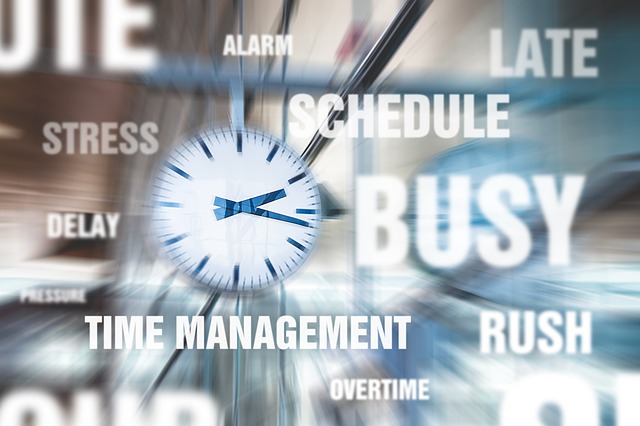Self-Care Activities to Reduce Burnout at Work

If you find yourself feeling unproductive and unmotivated at work, you could be struggling with burnout. It’s more than just a buzzword, and it certainly isn’t an excuse to get away with reduced productivity.
Burnout has become a major problem in the workplace. A study by Indeed discovered that 52% of workers are experiencing burnout at work in 2021. It has become a prevalent problem across multiple industries – so much so that you can actually receive a medical diagnosis. A burnout diagnosis is different from chronic stress or fatigue, though it can have similar symptoms.
In many cases, burnout is a systemic issue. Those in healthcare or other high-demand industries may be more at risk of experiencing it. But, it affects workers across multiple sectors, and anyone can be susceptible. Thankfully, self-care can help if you know how to integrate it the right way.
As a worker, how can you incorporate more self-care into your life? As an employer, what activities can you put in place to make it a part of your company culture?

Finding Ways to De-Stress at Work
There’s a common misconception that self-care needs to include something luxurious and over-the-top. That simply isn’t the case. Instead, it’s about focusing on every dimension of your overall well-being, including:
- Emotional
- Social
- Spiritual
- Physical
- Intellectual
- Financial
- Occupational
- Environmental
So, how can you focus on those dimensions when you’re at work and struggling?
Start with your personal workspace. Take a look around your desk. Is it cluttered and unorganized? That could be contributing to your stress. It’s a small step to take, but decluttering and cleaning your workspace can make a big difference in how calm and productive you are.
Other self-care tips you can use in the workplace include taking frequent breaks, getting outside when you can, and socializing with your co-workers throughout the day. Even practicing mindfulness from your desk can make a difference when you’re feeling overwhelmed by something. Take a few slow, deep breaths, and focus on the present rather than the stress surrounding you.
If you’re spending a lot of time at work, knowing how to de-stress and unwind while there is important. But, what’s more important is how you practice self-care in other areas of your life.
Stay Calm at Home
One of the biggest struggles people who are dealing with burnout face is finding a work-life balance. About 66% of American workers lack the work-life balance they want or need, contributing to much more than burnout. Not being able to strike a healthy balance can lead to feelings of depression or anxiety as well as physical and social problems.
Your first step in striking a better work/life balance is to spend more time at home. If that’s easier said than done, try some of the following tips:
- Learn to say “no” to extra work projects
- Prioritize your time
- Plan out personal time
- Stick to your set work hours
When you do have time at home, it’s important to make the most of it by practicing self-care. That looks different for everyone, so find something to unwind and feel good that works for you. For some, that includes getting physical. Exercise can boost your serotonin levels and your mood, as well as giving you more energy. One study was done with nurses that found yoga had a major positive impact on their symptoms of burnout, and those who participated experienced higher levels of self-care.
Sometimes, you might find that relaxing and watching your favorite show is just as beneficial as going on a morning jog. Streaming shows or movies can offer a positive, relaxing experience when you just need to unwind, allowing you to get into a calmer state of mind. But, make sure any binge-watching you do is done in moderation so you don’t experience a dip in your dopamine levels.
From cooking and baking to journaling and reading, there are countless ways to practice self-care in the home. Try to find something every day that boosts your well-being and is just for you. Self-care isn’t selfish, it’s necessary.

What Can Employers Do?
Studies have shown that positive work environments are more productive. Happy employees are motivated, loyal employees. Workers who feel overwhelmed and burnt out, on the other hand, are more likely to be unproductive, and they may even end up quitting. Thankfully, there are activities you can encourage and set up in the workplace to make a difference.
To start, be a participative leader and encourage everyone else to get involved in your decision-making. A lack of ownership in the decisions of the organization is often a sign of burnout, but getting people involved in the process should be one of your top priorities. When everyone is working together, projects and activities will almost always end up being more successful.
Be realistic with your expectations. One of the biggest causes of workplace burnout is being overloaded with work. When you’re assigning tasks, spread them out fairly and evenly so you don’t overload anyone. When you set realistic expectations and goals for your employees, they’re more likely to get done. Other self-care activities you can foster include:
- Encouraging employees to follow their passions
- Allowing for side-projects
- Scheduling breaks
- Cutting back on work hours
- Communicating regularly with employees
If you’re an employee, self-care in and out of the workplace is crucial for staying mentally and physically healthy in times of stress. Find ways to integrate it into your daily life, no matter where you are.
As an employer, if you haven’t yet encouraged and incorporated self-care into your business culture, it’s time to start. Many companies are currently at a crossroads thanks to the impact of COVID-19. There has never been a better time to re-evaluate your company culture and make positive changes where it’s necessary.
This guest post was authored by Ainsley Lawrence

Ainsley is a writer who loves to talk about how business and professionalism intersect with the personal, social, and technological needs of today. She is frequently lost in a good book.



